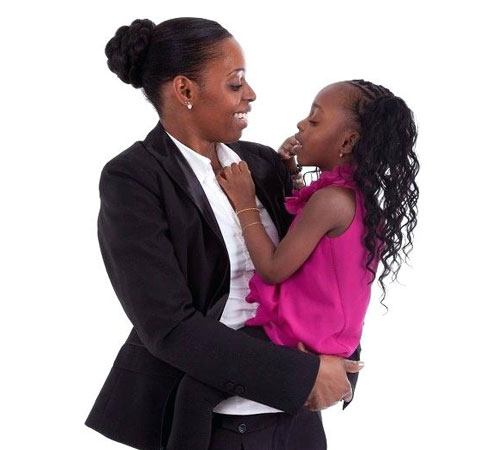 Every parent desires to know their children better. However, it is only when you have regular conversation with your kids that you can know them better.
Every parent desires to know their children better. However, it is only when you have regular conversation with your kids that you can know them better.
It was easier when they were still younger, because anything can be learned.
You had handy answers to inquiries like the foods they detested, and those that would have them hounding you for more.
Questions like; what facial expression meant they were sad, bothered, cheerful?
However, as they are constantly growing and developing new preferences, fears, ideas, and emotions, a conversation starter like “how are you” will start becoming mundane.
Therefore, if it’s your intention to continue to know your children, you definitely need to start asking more advanced, more specific questions that can readily spark up conversations.
Here are some conversation starters that can help spark up conversation with your kids:
Conversation To Get To Know Your Kids Better
- What made you happy today?
- Who is your best friend and why?
- How do the other kids at school treat you?
- What traits do you look for in friends?
- What do you think is the most important quality a person can have?
- Do you like your school, why yes, or no?
- What’s your most embarrassing moment?
Conversation To Enhance Family Relationships
Really, it is essential for your child to feel like an important member of the family, as it can be interesting to get a hang of what your child thinks about his family.
If there’s anything I know, it’s that, as kids grow up, they often look at their friends’ families or families on TV and wonder what it would be like if they were raised in a different environment – you did it, I did too.
So, it can be eye-opening to hear their thoughts on what they appreciate about your family, as well as things they might wish was different.
And rather than argue or defend the things that might not please your ears, simply ask some follow up questions about what inspired your child’s way of thinking. See some questions that can spark interesting conversations about your family:
- What is your favorite thing about our family?
- What are the most important things we’ve taught you?
- If you could make three family rules, what would they be?
- What do you think are the most important qualities of a good parent?
- What should we do more of as a family?
Conversation To Help Imbibe Gratitude In Your Kids
From improved physical health to better relationships, studies consistently show that gratitude has many benefits and zero disadvantages.
Asking questions that centered around gratitude and making it a habit to help your child grow up optimistic, can go a very long way in raising a child who feels thankful for all that he has. Some conversations starters to help spark up a meaningful conversation with your kids and help your kids cultivate gratitude include:
- What are the things you feel grateful for today?
- What are those things some of your friends or other people don’t have, but you’re really happy that you have?
- Tell me some things you can do that you think another person might not be able to because they are disabled?
- What are some things that I didn’t have as a kid that you’re happy you get to have?
These Help To Boost Imagination
After the years of pretend play has come and gone, your child’s imagination might reduce a bit
But here are some conversation starters that will help you spark up your kid’s creativity and imaginative instincts:
- If you could have any super power, what would it be and why?
- If you were called upon a stage to give a speech, what would you speak on?
- Given an opportunity to teach your class, what would you teach?
- If you wrote a book, what would it be about?
- If your pets could talk, what would they say?
- What color would you say is the happiest color? What makes it happy?
- If you won N1m what would you do with it?
- If you won a free visa today, what country would you travel to, and why?
Conversation Sparks To Help Groom Empathy
Kids can get caught up in thinking they’re the only person who matters.
You can nip egocentrism in the bud by helping your child think more about others and how they might feel. Here are some questions that can help your child develop empathy:
- Would you describe yourself as a kind person?
- What’s something nice you did for someone else today?
- How do you think other people feel when you are kind to them?
- What can you tell me about the bully in your class?
- How do you think kids who get bullied feel?
- Does anyone else ever step in to stick up for the kids being bullied in your class?
- If you could change one thing about the world, what would it be?
Conversation Starters To Help Train Your Kid’s Mental Strength
Kids can learn to build mental strength by learning how to manage their emotions, regulate their thoughts, and take positive action.
While it’s important to give them regular exercises that help build mental strength, you can go a leg further by asking targeted questions.
Here are some simple conversation sparks that can help kids develop mental strength:
- Is there something you learned today, that you didn’t know yesterday, what?
- What feeling do you think is most uncomfortable? Embarrassment, anger, fear, etc. and why?
- What do you think is the best way to react when angry?
- When you are worried, what do you do ?
- What are some things you can tell yourself when your brain tells you things that are too negative to be true, such as ‘you’ll never succeed’ or ‘no one likes you?’
- What would you do if the girl you like didn’t like you back?
Conversation Starters To Help Groom Ethical Thinking
Promoting ethos by asking questions about ethical issues can help your child get to know her values and develop morality. Here are a few conversation starters that can get you into some rich conversation and help your child groom ethical thinking:
- If your friend always forgets to bring his lunch to school, should other kids always share with him?
- Is it ever OK to ever cheat in school or sports?
- Is it okay to talk to your best friend in class, when your teacher in teaching?
- Do you consider talking to your friend during a test cheating?
- Is there ever a time that it would be OK to steal from someone?
Conversation Starters To Help Develop Confidence
Asking questions that help them identify their strengths, talents, abilities, and skills can help them realise them at an early age and put them to good use.
Here are some quality conversation sparks to boost your child’s confidence:
- What are you most proud of?
- What is something you are really good at?
- If you could learn a skill today, which would it be?
- What are some things you can do to make a difference in the world?
Conversation Starters To Help Develop Ambition
Young people sometimes have trouble thinking past the next five minutes, talk more of five years and more, let alone thinking much about their long-term future.
Asking some questions about the life they want to create for themselves is a good way to help them start setting up a picture of what type of life they want to live.
You may also find this article on Coronavirus Lockdown:10 Fun Things Mums Can Do At Home helpful
Here are some conversation starters that can help your child think more about the future and develop the ambition to make it happen:
Where would you like to live someday? A house in the country, an apartment in the city, on a farm, in a mansion, in an RV that travels around, or somewhere else?
- What do you want to be when you grow up?
- If you could achieve any goal, however impossible it seems, what would it be?
- What is one thing you want to achieve before you finish school?
- If you could change one thing about your life, what would it be?
- When you are older and rich, how would you give back to society?
Bottom Line
Asking general questions like “how are you? How was your day?” will most likely get you automated response like:
Alright
Fine
Okay
Good
Basically, questions and conversation starters should be specific and natural, and not feel like an interrogation.
Remember, the essence is to keep the conversations going.
Therefore, if you rapidly fire questions at your child, he’ll be more likely to say nothing.
So, no matter how strong the temptation to fire on hits you, limit your big questions to one or two a day.
Spend time talking about his thoughts and ideas and show that you’re interested in hearing what he has to say.
Interestingly, your child will relish your conversations together when he realises that you value his opinion, even when it’s different from your own.
Whether or not they talk is highly dependent on the approach you take to encourage them to open up and talk or back off.
Check out more on parenting here.



